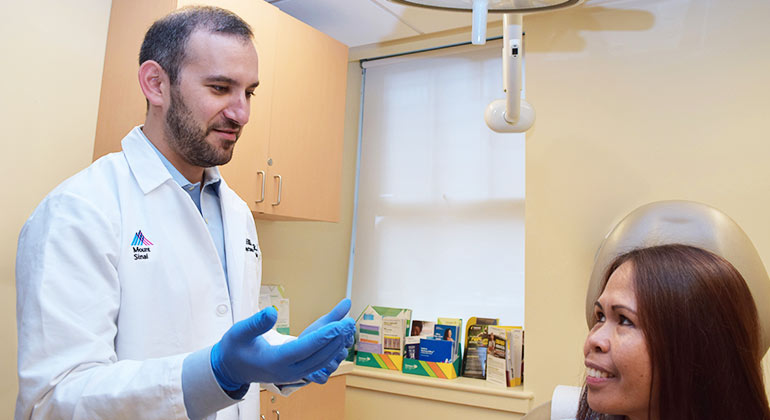Rosacea

Rosacea is one of the most common skin conditions that can cause your face to appear red and inflamed. It can also cause redness of the eyes. It affects about 14 million Americans. Symptoms vary over months to years. If you have rosacea, you might flush easily. Rosacea affects all ages or ethnicities but tends to be most common in white, middle-aged adults. Rosacea is often mistaken for acne, but it is not adult acne. In fact, over-the-counter acne medicines can worsen symptoms. If you think you might have rosacea, you should see a dermatologist. There are four types of rosacea. These include:
- Acne rosacea involves breakouts, pimples, and redness.
- Vascular rosacea leads to enlarged facial blood vessels, which can appear very red.
- Ocular rosacea causes red eyes, and eyelid swelling often resembling a stye.
- Rhinophyma is a thickening of the skin, especially on the nose, and can lead to visible pores.
You can have one or more types of rosacea at a time.
A variety of triggers can cause flare-ups of rosacea. These include hot/spicy foods, hot drinks, alcohol, and extremes of temperature, sun exposure, and stress among other triggers. While alcohol can trigger rosacea, it is not always the sole cause of the condition. People with rosacea are no more likely to suffer from alcoholism than the general population. Rosacea tends to run in families.
Treatments We Offer
Although rosacea can be difficult to cure, we can control the symptoms. Options include antibiotic therapy, laser therapy, and surgery. The most common treatments are topical and oral antibiotics. It is important to learn what triggers your rosacea. If you avoid triggers, you can flare-ups. Strategies include a daily sunscreen and sun protection, as well as washing your skin with a gentle cleanser. Zinc oxide with sunscreen of SPF 30 or higher is useful. You should also avoid stress, hot/spicy foods, hot drinks, and alcohol.
More severe rosacea can respond to other treatments. If you have enlarged capillaries (the smallest blood vessels) or telangiectasias, we may offer laser treatments. Rhinophyma, thickening of the nasal skin, is sometimes helped by surgical correction.